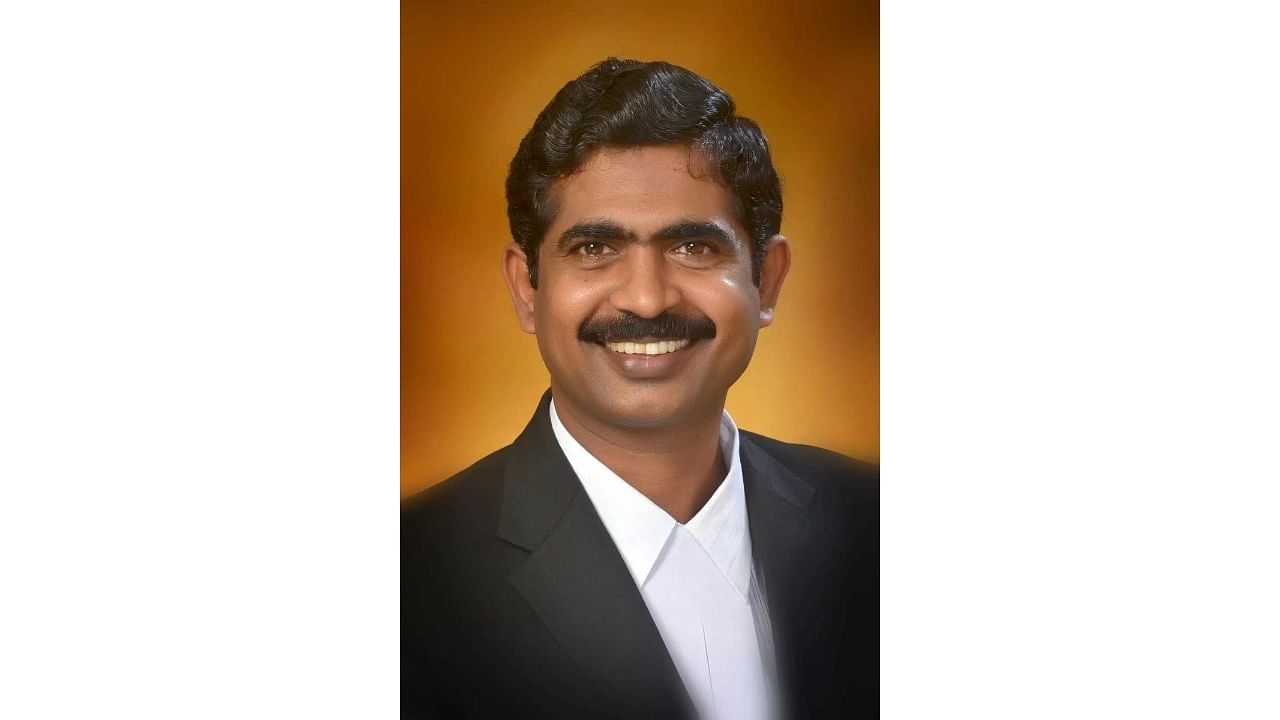
The courtroom arguments that convinced the judge to release Manju, a tribal youth framed under the Unlawful Activities (Prevention) Act, 1967, in the recently released Kannada movie 19.20.21 drew a standing ovation from the crowd. The arguments explained how three key articles of the Constitution were violated in Manju’s case.
The lawyer played on screen by Balaji Manohar was inspired by Dinesh Hegde Ulepady, a lawyer from Mangaluru.
Ulepady’s determined fight over the last two decades in several cases of human rights violations, while earning him foes, has made him a hero to many victims of state violence and persecution.
The case that inspired the 19.20.21 movie was that of Vittala Malekudiya, in which he, then a 23-year-old tribal student, was accused of being a ‘Maoist’ for demanding basic infrastructure for his native, and framed under the charges of sedition and terrorism. The case fought by Ulepady, which made headlines even in the international media, began in 2012 and concluded two years ago with the acquittal of Vittala.
Native of a remote village called Ulepady in Dakshina Kannada’s Mulki region, Dinesh Hegde was brought up in a middle-class Bunt family. He completed his law studies in 1999 in Mangaluru and enrolled as an advocate in 2001. “As I did not get the opportunity to work under any senior lawyers, I learnt all the necessary skills by sitting at the court and observing other lawyers,” recalls Ulepady.
When cases were hard to come by, the fledgling lawyer took up the defence of an accused in an open-and-shut murder case in 2001. Even though he lost the case eventually, the way he conducted cross-examinations and presented the case gave him recognition. “It gave a solid start to my career,” says the soft-spoken Ulepady.
Later, he took up several cases involving the nexus between the police, corporates and politicians. In the 2002 Bolar triple murder case, the police had illegally detained three people. Two of them lost their lives in custodial torture and the whereabouts of third one was not known. “My efforts made the police produce the accused before the court, and as a result, many cops lost their jobs,” narrates Ulepady.
Vittala Malekudiya remembers how Ulepady fought his case without charging a single rupee. “Dinesh Hegde shows complete involvement with his clients. When our case was going on for years, he visited our region for research and argued vehemently in court. He was a pillar of strength in our nearly decade-long struggle to get justice.”
Ulepady’s involvement is not restricted exclusively to court cases. Over the years, he has participated in and even organised several pro-people movements across the coastal region. He led protests against the environmental impact of MRPL in Mangaluru and the merger of banks and anti-CAA-NRC protests among others.
Muneer Katipalla, state president of CPI(M)’s youth wing says, “His legal backing for our recent fight against Surathkal toll gate was crucial in its success. He is the backbone of many such people’s struggles for justice.”
Representing the under-represented has had its own cost on Ulepady. He has been facing intimidation, life threats and even physical assaults. As he was successful in closing the illegal quarries in Mulki region in 2009-10 through legal notices, a person hired by the mining mafia grievously injured him with the intention to murder. “The incident actually convinced me to do more courageous work as anyway fate is not in my hands,” chuckles Ulepady.
In 2006, his marriage with Ashwini through a unique event also made news. “We wanted to create an impact with a simple marriage and send out a message against dowry, opulence and other customs. So we got married on a supposedly inauspicious day under a big banyan tree, wearing minimal jewellery and simple clothing,” Ulepady goes back in time.
Journalist Naveen Soorinje says that the activists including him, visiting Vittala Malekudiya’s native place Kuthlur inside Kudremukh National Park, thought only about organising Malekudiya community socio-politically.
“But Ulepady, realising the potential of livestock farming in the hilly and forested area, arranged for some livelihood generation activities by donating 40 goats to them,” he recounts.
Widely regarded for his eloquence, perseverance and social responsibility, Ulepady has saved many people who are tortured by the police. “Though he does other lawsuits with a charge, he is firm in his fight to get justice to everyone whether they pay or cannot pay,” notes Katipalla.
Ulepady feels that laws such as Unlawful Activities (Prevention) Act, Information Technology Act, IPC Sections 353, 505(2), 295 etc are often misused by the authorities.
Observing the paradigm shift in the state of affairs post 2014, he says, “The protests we carried out before 2014 at least used to fetch some significant response from the government, but now, there has been complete apathy and neglect.”
“Ulepady’s only conventional ‘flaw’ is he is non-compromising, which leaves people who expect ‘quick relief’ to their cases disappointed. Unlike some other lawyers, he does not ‘deal’ with police,” quips Soorinje.